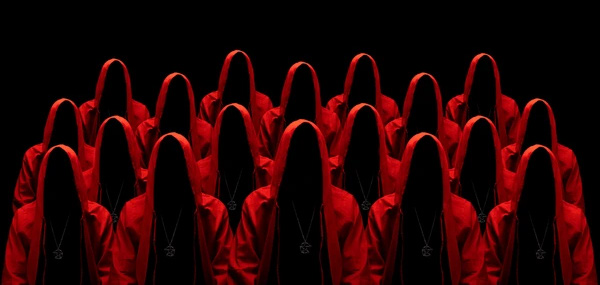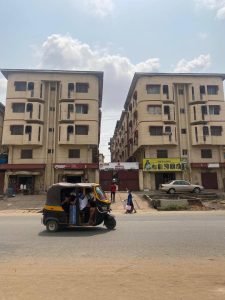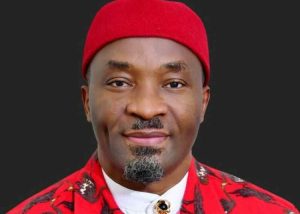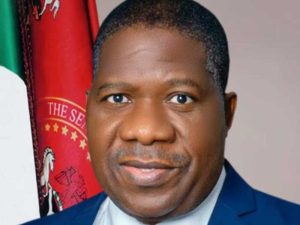Wasted Potential: How Cultism Is Devouring Our Youths

Wasted Potential: How Cultism Is Devouring Our Youths
LAGOS – The specter of cultism is rapidly erasing the bright future of the youths that are considered the glory and the promise of the next generation, leaving a trail of wasted potential and shattered dreams in its wake.
What began as a fringe element on university campuses has now permeated nearly every corner of society, transforming young men and women into foot soldiers in a brutal war that is ravaging their minds, bodies, and spirits. The initiation process into these secret cults is one of the most horrifying aspects of this scourge. What begins as an allure of brotherhood and power has quickly become a descent into the macabre.
To prove their loyalty and “strength,” initiates are subjected to painful and degrading rituals. Often, they are beaten to the point of unconsciousness, their bodies scarred for life as a testament to their indoctrination. Also, it is not uncommon for initiates to be forced to commit unspeakable acts, including murder, to demonstrate their resolve.
Even more disturbing are the rituals that follow. These young men and women are often required to drink human blood or partake in human sacrifices. Some cults go diabolical, believing that these horrifying acts would protect them from harm, making them impervious to bullets or invisible to their enemies. Such beliefs, while baseless, are fervently adhered to, and they further fuel the cycle of violence.
Meanwhile, drugs are also key component of the cultist lifestyle. To numb themselves to the horrors they witness and commit, and to embolden them for the violence ahead, youths are plied with hard drugs such as cocaine, heroin, and methamphetamine. These substances not only destroy their health but also deepen their sense of invincibility, leading them to commit atrocities with little regard for the consequences.
What is most alarming is how early cultism now takes root. Once limited to university campuses, it is now a menace in secondary schools across the country. Teenagers, barely out of childhood, are recruited into these secret societies, and soon become embroiled in bloody wars over territory, power, and pride. In universities, the situation is no better. Students brandish guns as casually as they do notebooks, turning lecture halls into battlegrounds.
Lecturers are not spared either. Intimidation has become the order of the day, with cultists forcing lecturers to award undeserved grades or face dire consequences. Professors who resist are harassed, beaten, or even killed. On-campus elections, which ought to be a training ground for future democratic leaders, have become militarised, with cultists serving as hired thugs for political aspirants. Opponents are silenced, female students are harassed into becoming “girlfriends” of cult leaders, and those who resist live in constant fear for their lives.
However, cultism is no longer confined to educational institutions. It has seeped into every aspect of the society even among street touts, market traders, and politicians. It has become a tool for political warfare, with cultists hired to intimidate rivals or disrupt elections. In some cases, cult members have been employed as enforcers for corrupt politicians, using violence to maintain their patrons’ hold on power.
Beyond politics, the rise of cultism has also fuelled other forms of violent crimes. Cult members often double as armed robbers, kidnappers, and assassins, using their skills and connections to wreak havoc in society. Communities that were once peaceful are now war zones, with constant clashes between rival cults leaving innocent citizens caught in the crossfire.
In many ways, the spread of cultism reflects a failure of parenting and societal oversight. Many parents, often unaware of the dangers their children face, inadvertently push them into the arms of cults through neglect or a lack of guidance. In some cases, families are so caught up in their daily struggles that they fail to notice when their children are being drawn into the dark world of cultism.
Meanwhile, The Nigeria police in a bid to curb the illicit association has established the National Coordinator of Police Campaign Against Cultism and Other Vices, (POCACOV) a crime-preventive unit. The unit, headed by CSP Olabisi Okuwobi, also noted that the fight against cultism and drugs must not be limited to the police.
Advertisement
She added that law enforcement officers cannot combat crime alone, which is why the Inspector General of Police, Kayode Egbetokun, deemed it fit to strengthen POCACOV. “It is imperative to partner with what the Police are doing through community policing. POCACOV is like community policing because we campaign and advocate against cult activities and their consequences.”
Religious institutions, both churches and mosques, also have a role to play. Although, some have taken proactive steps to combat the spread of cultism through counseling and outreach programmes and these institutions are often the last line of defence, offering moral guidance and support to youths who might otherwise be lost to the streets.
Enlightenment programmes, both governmental and non-governmental, have tried to raise awareness about the dangers of cultism, but more needs to be done. Schools, in particular, should be safe spaces where students can learn and grow, free from the shadow of cultism. Government intervention, strict law enforcement, and community participation are crucial to curbing this epidemic.
Speaking on the menace of cultism and its effects on the society, Dr. Salaudeen Hashim, Director of Programmes, CLEEN Foundation, noted that there is a collapse of social capital in the country and that collapse of social capital has given rise to a number of serious unorganised crime and cultism also is one of it. He noted that the reason why this is so is because there is an entire generational interaction about how being a member of organised crime has also empowered people at different levels.
He recalled that very recently there was a lady who made an allegation that this was how she actually obtained her degree. So this is actually gradually creeping beyond tertiary institutions. It has gone from society to tertiary institutions and from tertiary institutions now to secondary schools. This is actually what they have seen. Most of them have bigger brothers who are members of this and they are beginning to see them as models.
“It is actually happening because we have not seen a social interaction that has actually created a model in the mind of young people. Because if you have models and you are provided to them, they will be able to leave a banner without staying. But what they are seeing now is that since the society is not providing a functional model, then they are picking up models on their own.
The model they are picking up on their own is informing the kind of organised groups that are emerging in various societies. And of course, one of the issues where I see a collapse in social capital is that even the videos and censors board is not doing a lot of good to the young minds. Because most music videos and most home videos that you see do not even depict most times the kind of value that people should go on with.
So you leave with an impression that being part of a social group that empowers you to achieve some social objective and that unfortunately is a wrong narrative. But unfortunately that is what we have seen on the rise and on the increase. Until we have that level of change, we may not be able to achieve that objective. And that in it must be dealt with if we must actually change the kind of ugly development that we are seeing currently in our society.
“The police have what they call the POCACOV and because of God they are the ones who lead internally. POCACOV is actually a soft approach that they have put together not to actually incarcerate but to either prevent people who are vulnerable to join, it has also provided schemes to empower young people to provide them alternatives and reorientation their minds.
So security agencies are doing what they are able to do but I think they can do more in terms of measuring and managing this. Drug in itself is actually an enabler. And this is something that recently the National Assembly actually raised as a big observation. That this has enabled the kind of divide and the kind of negative influences that we have seen lately. So for us to be able to change the narrative we must also be able to curb the level of illicit drugs and where they are being sold.
The access to various drugs is actually very easy. The affordability is there because it is very cheap and there is no tax on it. And there is no major control in terms of where you can buy them. If you go to most motor parks they sell all of these. If you go to various public places, markets, all of these things are sold.
The question remains how the government provides some level of strong control to be able to undermine and reduce the level of accessibility. That for me is actually very fundamental. If we deal with this I guess I will be able to manage some of these issues that enable people to join these groups.”





